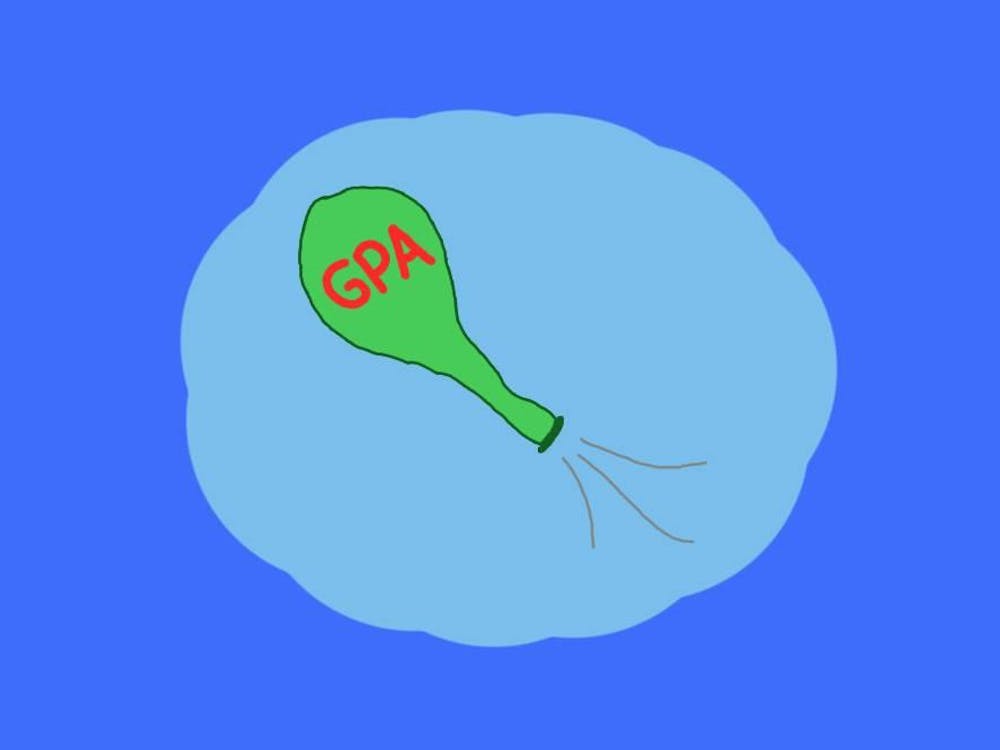I'M IMMENSELY thankful I have a father. I can't imagine growing up without one, probably because mine has been by far the most important influence in my life. But many kids do grow up without a father in their lives, and that lack of a male role model has consequences that reach much farther than not having anyone to play baseball in the backyard with.
As a part of its Black History Month programming, the University's Office of African-American Affairs sponsored a lecture last week by Dr. Joseph White, Professor Emeritus of Clinical Psychology at the University of California-Irvine. The talk, "African-American Male Psychology: Challenges and Conflicts in the Journey of Living," addressed the problems black men and boys face in current society.
|
White discussed the psychological obstacles to success for black men in America today, including the struggle for a strong understanding of self-identity and the need for solid interpersonal relationships.
It's important to understand why black male children in this country don't have these needs met as well as other children. But black men -- especially educated, responsible black college-educated men -- are in a unique position to help black boys who don't have fathers and who face these psychological challenges as a result.
In a traditional nuclear family, the father often has a strong relationship with his son and helps him form a sense of identity. Fathers are natural male role models for their boys and likely will shape their sons' values, interests and skills. This can't happen if Dad isn't around, and for the majority of black children, he isn't.
According to United State Census Bureau reports, about 18 percent of whites under age 18 live with only their mother. But for black children, this number is a staggering 51 percent.
This means that the average black boy in this country doesn't have a father interacting with him on a daily basis. He doesn't have a dad to show him how a man is supposed to act, to provide a model of responsibility, and to help him formulate goals and make choices.
The absence of a father doesn't mean this black boy won't learn these things. He'll just learn them from other people -- other male figures in his life.
Granted, his mother certainly will be a role model and provide some of this developmental guidance. But as Dr. White discussed, there is a specific psychological need for strong male to male relationships. Mom can't provide this -- someone else must. A young black man therefore is forced to turn to other male role models.
It's possible that strong, responsible, black male figures will be found outside the family. But this isn't the rule -- it's the exception. Instead, White said, the role models for young black men frequently are "the brothers in the street." And when -- in the absence of better role models -- he turns to these street brothers, a black boy is likely to see crime, irresponsibility, materialism and lack of education.
Of course, this is a stereotype -- it isn't intended to describe all black men. White talked at length about such stereotypes and the pervasiveness of an overly-negative image of black males.
But it does represent how black men are perceived. And such stereotypes still have validity in describing the developmental environment of an average black child in America. When it comes to role models, perceptions can matter as much as realities, even if they're based on stereotypes.
So especially for all the black men reading this, recognize that you are a role model. You're in college. You're succeeding, especially compared to the stereotypical black man your age. Your little brother, the kid next door, the boy you pass on the street -- they all look up to you, whether you like it or not. So remember that you're being watched.
As black men, you have the greatest ability to positively influence black boys. In addition to realizing that you are a passive example, be an active, constructive role model. Spend time one-on-one with a boy who doesn't have a father around. Show him what he can be. Prove to him with your story and your example that he can succeed.
Opportunities to do this abound: Madison House offers mentor-related programs such as Big Siblings, Tutoring, Teens Give and after-school programs in local schools. And B.U.C.K.S. -- Brothers United Celebrating Knowledge and Success -- is a student organization devoted primarily to this cause.
Lots of us had loving, supportive fathers who contributed a tremendous amount to our lives. Remember that the average black boy today does not, and know that you have the power to help him.
(Bryan Maxwell is a Cavalier Daily associate editor. His column normally appears Wednesdays in The Cavalier Daily.)




